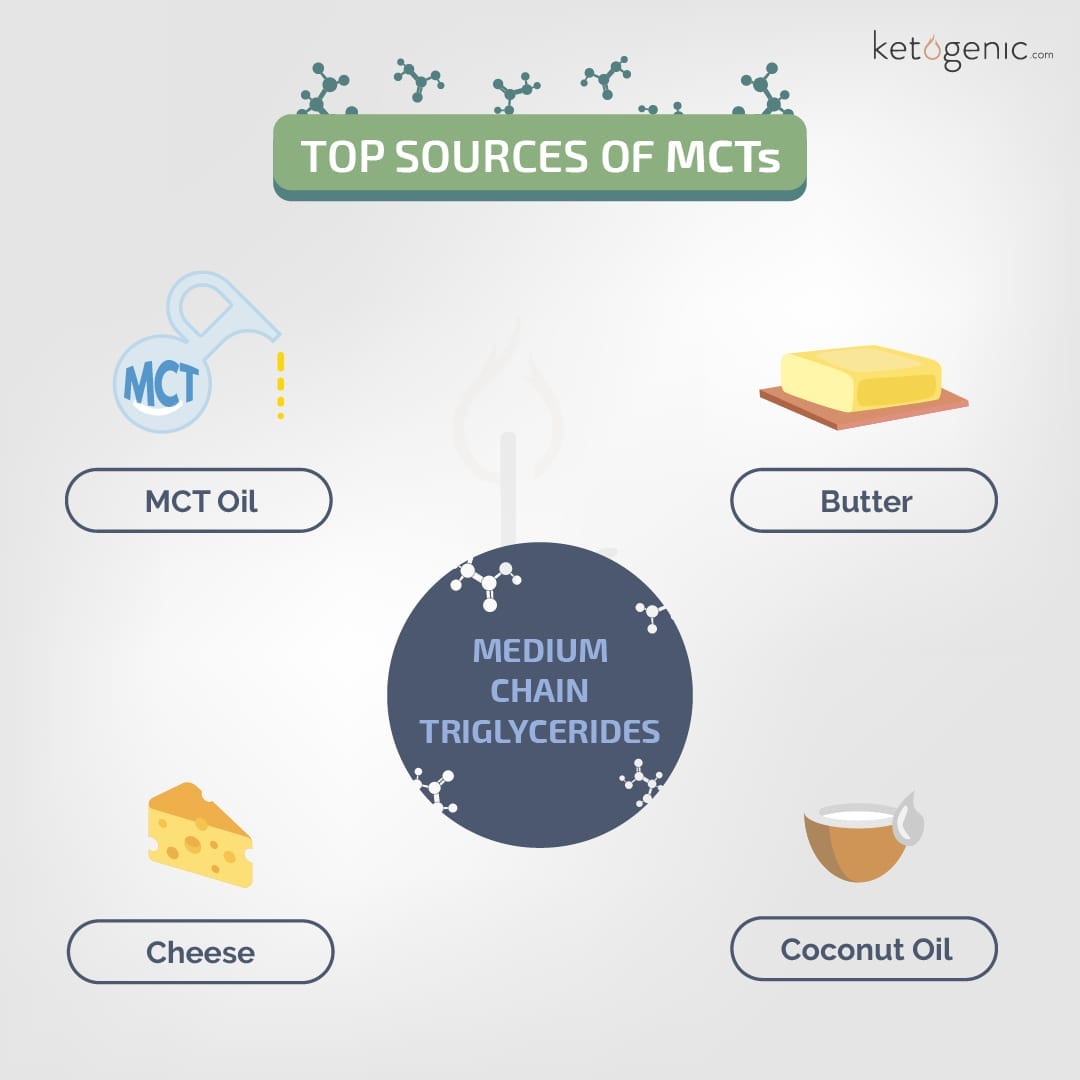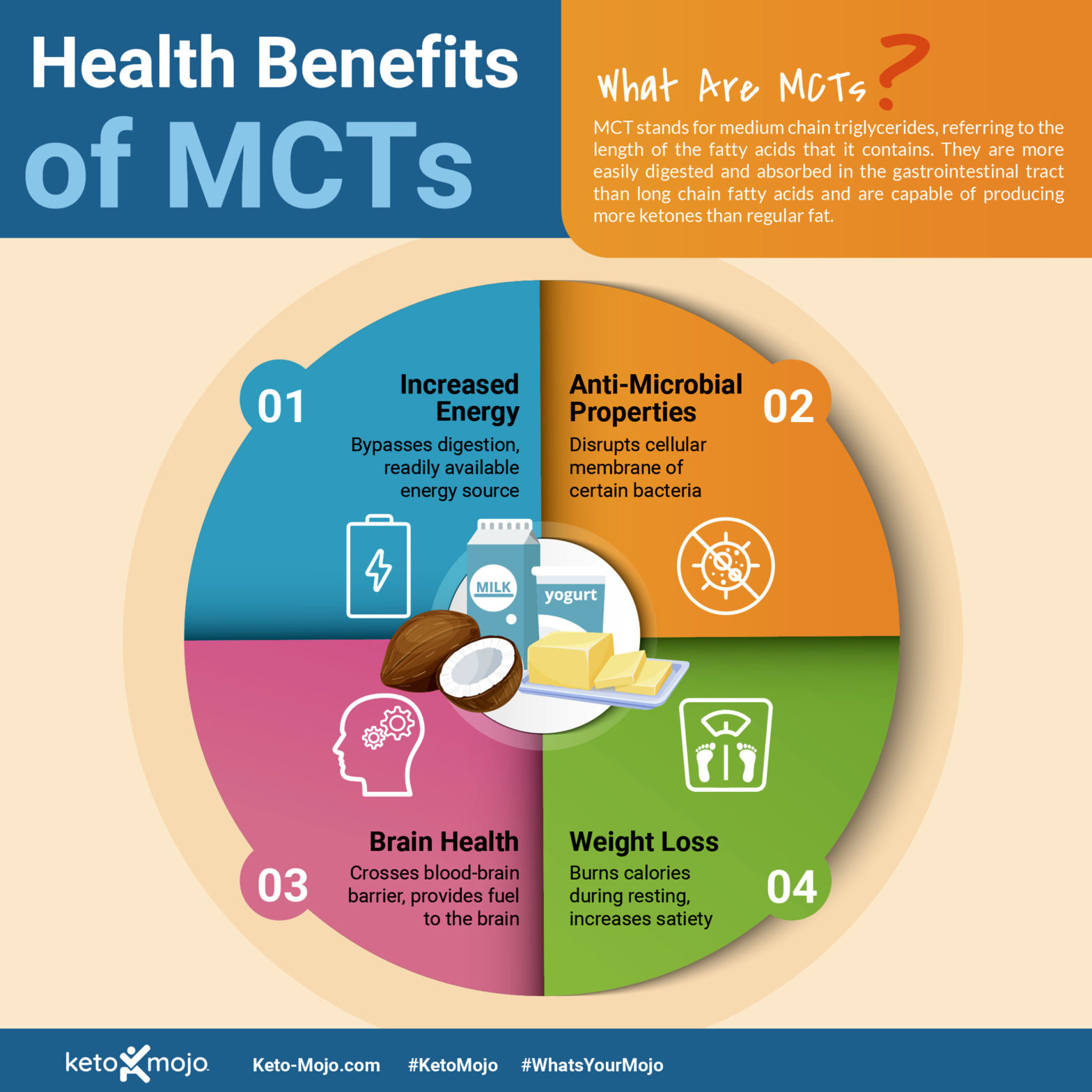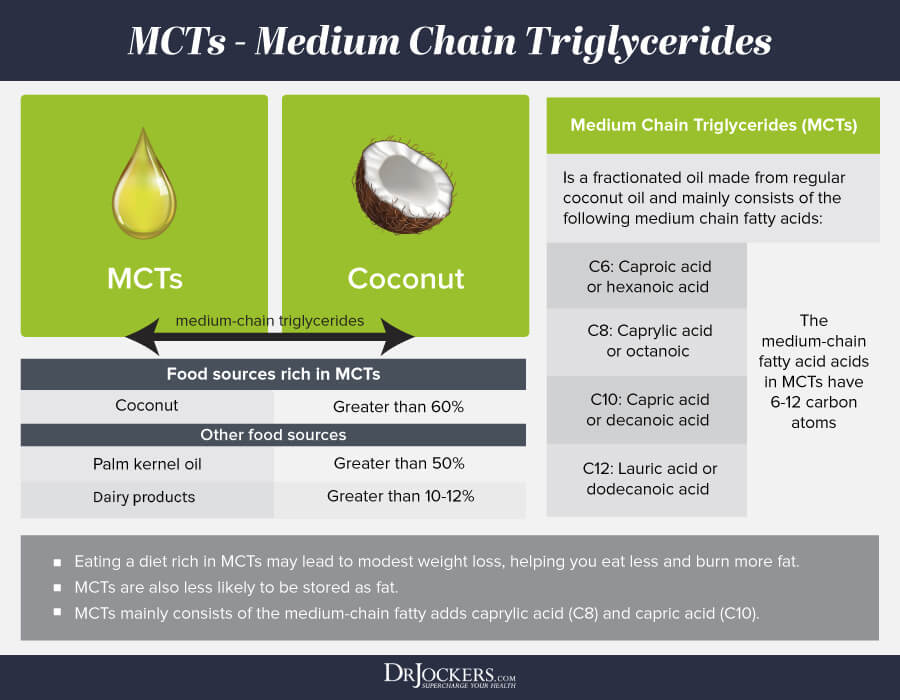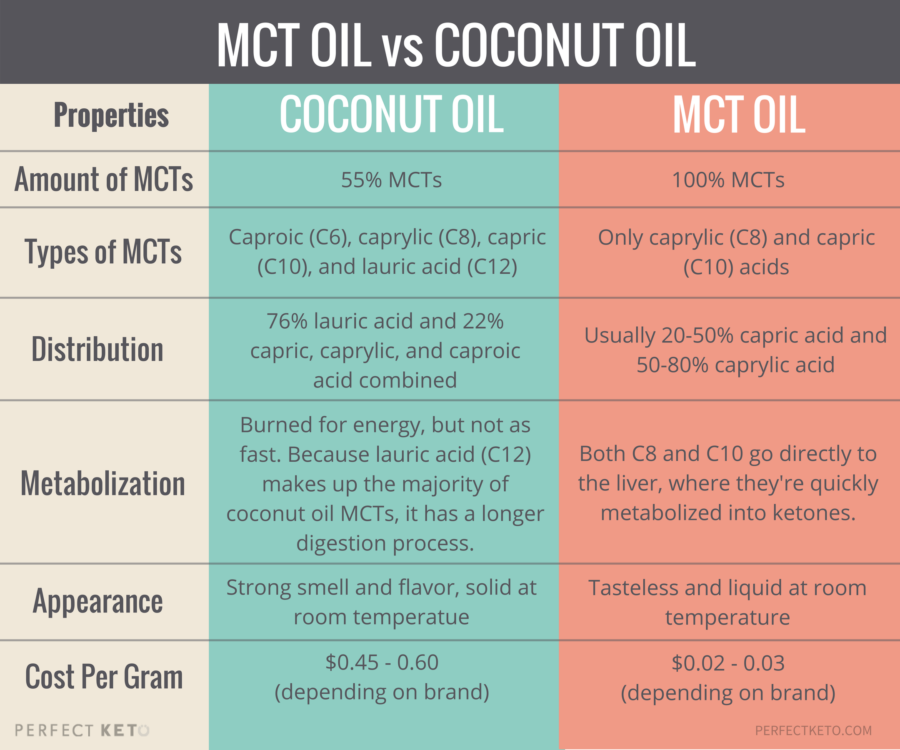What Foods Have The Most Mct's
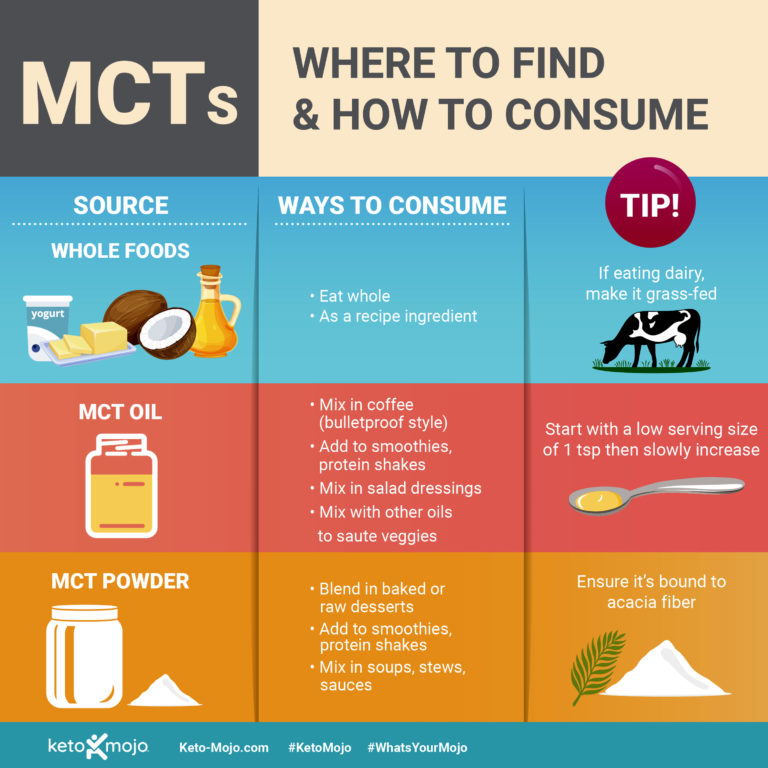
Imagine a sun-drenched kitchen, the air thick with the aroma of freshly brewed coffee and the gentle hum of morning activity. A vibrant green smoothie sits on the counter, glistening with tiny droplets of condensation. In the cupboard, a jar of coconut oil stands sentinel, a silent promise of energy and vitality. These everyday scenes often belie the presence of a powerful, yet often overlooked, dietary component: Medium-Chain Triglycerides, or MCTs.
This article explores the foods richest in MCTs, delving into their sources, benefits, and how they can be incorporated into a balanced diet. Understanding MCTs and where to find them can be a game-changer for anyone seeking to optimize their health and wellness.
What Exactly Are MCTs?
MCTs are a type of saturated fatty acid naturally found in certain foods. Unlike long-chain triglycerides (LCTs), MCTs are shorter in length, typically containing 6 to 12 carbon atoms. This unique structure allows them to be more easily digested and absorbed by the body.
Because of their simpler structure, MCTs are rapidly transported to the liver. There, they are quickly converted into energy, rather than being stored as fat.
The Top MCT Food Sources: A Deep Dive
While MCT oil is a concentrated source, several whole foods offer these beneficial fats. Knowing where to find them naturally empowers you to make informed dietary choices.
Coconut Oil: The King of MCTs
Coconut oil reigns supreme as the most abundant source of MCTs. Its composition is roughly 60-70% MCTs, primarily lauric acid (C12), capric acid (C10), and caprylic acid (C8).
The high MCT content contributes to coconut oil's reputation for boosting energy and supporting weight management. However, it's important to note that lauric acid, while technically an MCT, behaves somewhat like a long-chain triglyceride in the body.
Palm Kernel Oil: A Less Sustainable Option
Similar to coconut oil, palm kernel oil is rich in MCTs. It contains approximately 40-50% MCTs, with a similar fatty acid profile to coconut oil.
However, palm kernel oil production is often linked to deforestation and habitat destruction. Because of this, sustainable alternatives are generally preferred.
Dairy Products: A Moderate Source
Dairy products, particularly those from grass-fed animals, contain a moderate amount of MCTs. Butter, cheese, and whole milk offer a blend of fatty acids, including MCTs.
The exact MCT content varies depending on the animal's diet and breed. Grass-fed cows tend to produce milk with a higher proportion of beneficial fats, including conjugated linoleic acid (CLA) and MCTs.
For example, a tablespoon of butter contains around 3-4% MCTs. While not as concentrated as coconut oil, dairy can still contribute to your overall MCT intake.
Goat Milk and Cheese: A Niche Source
Goat milk and cheese also offer a source of MCTs. Some studies suggest that goat milk may be easier to digest than cow's milk for some individuals.
While the MCT content is similar to cow's milk, the specific fatty acid profile may differ slightly. This can influence how the body metabolizes these fats.
Other Potential Sources: A Glimpse
While the above sources are the most significant, smaller amounts of MCTs can be found in other foods. These include certain nuts and seeds, though the quantity is relatively low.
For instance, some nuts may contain trace amounts of capric and caprylic acid. However, they are primarily composed of long-chain triglycerides.
Understanding MCT Oil and its Variants
MCT oil is a concentrated source of MCTs derived from coconut or palm kernel oil. It is typically available in liquid or powder form and is used as a dietary supplement.
Different MCT oils contain varying ratios of caprylic acid (C8) and capric acid (C10). C8 MCT oil is often considered the most effective for energy production, as it is the shortest chain and most rapidly absorbed.
Some products also include lauric acid (C12), although its effects are less pronounced due to its slower absorption rate. Understanding the composition of your MCT oil is crucial for achieving your desired health outcomes.
Incorporating MCTs into Your Diet: Practical Tips
Adding MCTs to your diet can be surprisingly simple. Here are some practical ways to boost your intake.
- Add a tablespoon of MCT oil to your morning coffee or smoothie.
- Use coconut oil for cooking or baking.
- Include grass-fed butter in your meals.
- Snack on cheese or yogurt made from grass-fed milk.
It's best to start with small amounts of MCT oil to assess your tolerance. Some individuals may experience digestive discomfort if they consume too much too quickly.
The Science Behind MCTs: Benefits and Considerations
MCTs have been studied for their potential health benefits, ranging from weight management to cognitive function. Research suggests that they may promote satiety, increase energy expenditure, and support brain health.
However, it's important to approach these claims with a critical eye. While the research is promising, more studies are needed to fully understand the long-term effects of MCT consumption.
Individuals with certain medical conditions, such as liver disease, should consult with their doctor before using MCT oil. Overall, MCTs can be a beneficial addition to a healthy diet, but they should be consumed in moderation and as part of a balanced eating plan.
Conclusion: A Balanced Approach to MCTs
The world of MCTs can feel like a complex puzzle, but understanding their sources and potential benefits empowers you to make informed choices. From the creamy richness of coconut oil to the subtle presence in dairy, these fats offer a unique pathway to energy and well-being.
Remember, a balanced approach is key. Prioritize whole food sources of MCTs and consider MCT oil as a supplementary tool.
By listening to your body and incorporating MCTs mindfully, you can unlock their potential and embark on a journey toward optimal health. Embrace the journey, and savor the subtle power of these remarkable fats.




